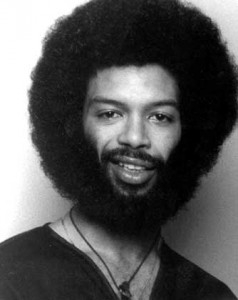Rap musician Gil Scott-Heron dies
New York — Musician Gil Scott-Heron, who helped lay the groundwork for rap by fusing minimalistic percussion, political expression and spoken-word poetry on songs such as ‘The Revolution Will Not Be Televised,’ died Friday at age 62.
A friend, Doris C. Nolan, who answered the telephone listed for his Manhattan recording company, said he died in the afternoon at St. Luke’s Hospital after becoming sick upon returning from a European trip.
“We’re all sort of shattered” – she said.
Scott-Heron’s influence on rap was such that he sometimes was referred to as the Godfather of Rap, a title he rejected.
“If there was any individual initiative that I was responsible for it might have been that there was music in certain poems of mine, with complete progression and repeating `hooks,’ which made them more like songs than just recitations with percussion” – he wrote in the introduction to his 1990 collection of poems, “Now and Then.”
He referred to his signature mix of percussion, politics and performed poetry as bluesology or Third World music. But then he said it was simply ‘black music or black American music.’
“Because Black Americans are now a tremendously diverse essence of all the places we’ve come from and the music and rhythms we brought with us” – he wrote.
Nevertheless, his influence on generations of rappers has been demonstrated through sampling of his recordings by artists, including Kanye West.
Gil Scott-Heron has died at the age of 62. The cause of his death is still unclear.
The influential musician and poet – often given a “Godfather Of Hip-Hop” nickname he rejected – passed away in New York’s St Luke’s Hospital yesterday, May 27, reports BBC News.
It is believed that Scott-Heron fell ill after returning from a trip to Europe.
After starting his recording career in 1970, his output spanned soul, jazz, blues and the spoken word.
His work had a strong political element. “The Revolution Will Not Be Televised”, perhaps his best-known work, critiqued the mass media of the 1970′s.
He was one of the first artists to use his music to speak out about the apartheid in South Africa, some time before the issue became the focus of a popular global campaign.
Scott-Heron went on to influence generations of musicians, both inside and outside hip-hop.
Kanye West heavily sampled Scott-Heron’s spoken word pieces on last year’s “My Beautiful Dark Twisted Fantasy” album.
Scott-Heron’s final album was last year’s “I’m New Here”, his first studio LP in 16 years.
The album was reworked with The xx’s Jamie xx into a remix album, “We’re New Here”, which was released last February.
Gil Scott-Heron, who died on May 27 aged 62, was a composer, musician, poet and author whose writings and recordings provided a vivid, and often stinging, commentary on social injustice and the black American experience; his declamatory singing style, allied to the overtly political content of his work, made him widely recognised as one of the inspirational figures of rap music.
Scott-Heron first came to attention with his 1970 recording The Revolution Will Not Be Televised, an attack on the mindless and anaesthetising effects of the mass media and a call to arms to the black community: ‘You will not be able to stay home, brother./You will not be able to plug in, turn on and cop out./You will not be able to lose yourself on skag and skip,/Skip out for beer during commercials,/Because the revolution will not be televised.’
Written when Scott Heron was just 18, it first appeared in the form of a spoken-word recitation, his impassioned incantation accompanied only by congas and bongo drums, on his debut album Small Talk at 125th and Lenox.
The following year Scott-Heron recorded the song for a second time, this time with a full band, for his album ‘Pieces of a Man’, and as the B-side to the single ‘Home Is Where The Hatred Is’.
The song went on to be covered, sampled and referenced in innumerable recordings, the title entering the lexicon of contemporary phraseology. In 2010 it was named as one of the top 20 political songs by ‘the New Statesman’.
